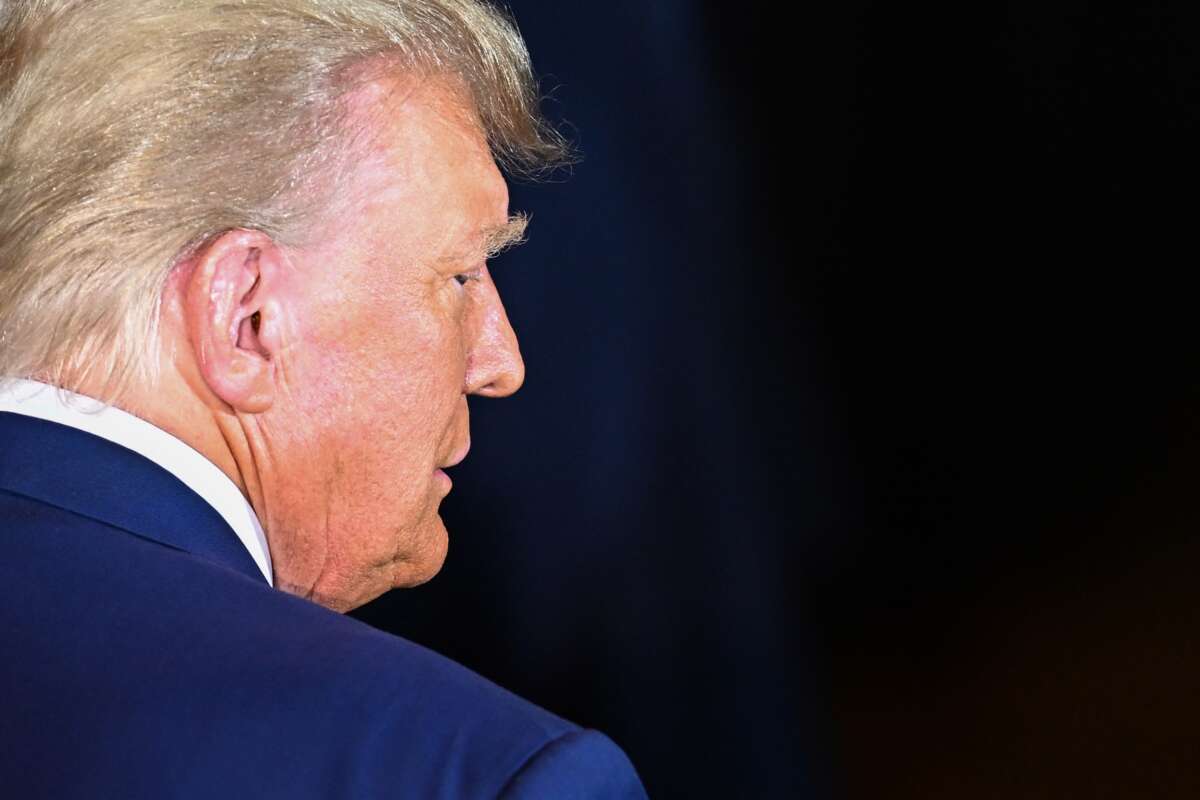The defamation trial brought against former President Donald Trump by writer E. Jean Carroll, who alleges that Trump raped her in a dressing room in the mid-1990s, appeared to conclude on Thursday, barring any surprise testimony from Trump.
The judge presiding over the case left the door open for Trump to speak before the jurors in person, as his defense team opted not to present evidence or testimony from witnesses during the trial. Instead, Trump’s lawyers simply argued against evidence and witness testimony brought by the plaintiff’s attorneys.
Although Trump has indicated that he may take up the offer to testify in person, he has not yet done so. But Trump did answer questions from Caroll’s lawyers in a video deposition this week. During that deposition, he insulted numerous women’s physical appearances, suggesting they weren’t attractive enough for him to rape.
“No fewer than four times, Trump has been seen by jurors disparaging the attractiveness of women who appeared in court,” Adam Klasfeld, managing editor for Law & Crime, reported this week.
The trial is based on Trump’s response to Carroll’s allegations in recent years that the former president had raped her in 1996. Trump responded to the allegations by deriding Carroll on social media and alleging, without evidence, that she was attempting to ruin his image.
In doing so, Trump “lied and shattered my reputation,” Carroll said, arguing on the witness stand last week that the former president’s words impaired her career and led to her firing at Elle magazine as an advice columnist. “I’m here to try to get my life back.”
Numerous witnesses backed up Carroll’s claims during the trial, testifying that she had called them directly after the alleged rape to describe what had happened. Still, Trump has maintained, with scant evidence, that he did not rape Carroll — and during his deposition, he belittled and denigrate Carroll’s appearance, telling her lawyer Roberta Kaplan on the video that “she’s not my type.”
“It’s not politically correct to say it. I know that, but I’ll say it anyway,” Trump said.
Trump went on to say that Kaplan was also unattractive to him. “You wouldn’t be a choice of mine either,” he said to her.
Trump’s misogynistic line of defense was widely condemned by observers. The former president’s argument is “meaningless,” wrote Kansas City Star opinion columnist Melinda Henneberger, “because even if it were true that he doesn’t go for thin blonde former beauty queens, rape isn’t about attraction. It’s not about desire, but domination. It’s not, ‘I like you,’ but ‘I want to hurt you.'”
Trump’s comments during the deposition seem to suggest he’s willing to commit sexual assault, Henneberger went on. “Doesn’t that imply that he wouldn’t mind raping someone more worthy of his mistreatment?” she said.
Unfazed by Trump’s words, Kaplan continued questioning the witness, inquiring if Trump stood by his comments in a leaked Access Hollywood recording in which he bragged about his ability to grab women by their genitals due to his celebrity, which made headlines during the run-up to the 2016 election.
Trump defended his comments.
“Historically that’s true with stars,” he said. “If you look over the last million years, that’s largely true, unfortunately — or fortunately.”
When asked if Trump believed he was a star, he responded in the affirmative. “Yeah,” he said.
Trump also claimed that he had no idea who Carroll was prior to her allegations against him. That assertion flies in the face of pictures presented by the defense showing Trump and Carroll talking to one another at social gatherings.
When presented with one of those images, taken in 1987, Trump mistook Carroll for his second wife, Marla Maples. When one of Carroll’s lawyers informed Trump that it was Carroll in the picture, he backtracked, claiming the image was “very blurry.”
Carroll’s lawyers concluded their case on Thursday. Trump’s legal team also sought to wrap up the trial, refusing to call any witnesses and presenting no additional evidence.
Trump has until Sunday to decide whether or not to testify in person. Although his lawyers have said that he won’t take the stand, Trump, who was in Ireland on Thursday, has said that he will “probably attend” the end of the trial to “confront” his accuser.
Trump also claimed, without evidence, that the judge was “extremely hostile” toward him during the trial.
As the trial has wound down, several observers have commended Carroll for refusing to allow Trump to damage her career and reputation unchallenged.
“Whether or not Carroll wins this case, it is her bravery, and the bravery of those who have come before her, including Anita Hill and Christine Blasey Ford, that is a testament to how far we’ve come,” wrote Amber Tamblyn, a member of the MeToo movement, in an op-ed this week for The Los Angeles Times. “Even if she loses the fight to hold Trump accountable for his actions in a court of law, Carroll has won the ability to take back her own story, publicly, and to be an example for others to consider doing the same.”
Join us in defending the truth before it’s too late
The future of independent journalism is uncertain, and the consequences of losing it are too grave to ignore. To ensure Truthout remains safe, strong, and free, we need to raise $27,000 in the next 24 hours. Every dollar raised goes directly toward the costs of producing news you can trust.
Please give what you can — because by supporting us with a tax-deductible donation, you’re not just preserving a source of news, you’re helping to safeguard what’s left of our democracy.
